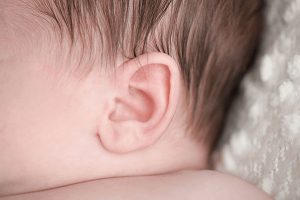Overview of Hawaii Newborn Hearing Screening Program (NHSP)
The Hawaii Newborn Hearing Screening Program (NHSP) is Hawaii’s state Early Hearing Detection and Intervention (EHDI) program.
In 1990, Hawaii became one of the first states to require newborn hearing screening and follow-up. Since then, early hearing detection and intervention has become a national public health initiative endorsed by such groups as the American Academy of Pediatrics, the National Institutes of Health, and the Centers for Disease Control and Prevention. The Healthy People 2020 prevention agenda for the nation also includes early hearing detection and intervention objectives.
The Hawaii NHSP assists health care providers in ensuring that babies born with hearing loss are identified and referred for appropriate follow-up services to support language acquisition and cognitive development. Fifty to sixty infants and toddlers are identified with hearing loss each year in Hawaii.
The three primary goals of the EHDI program are often referred to as the:
- Screening before age 1 month
- Diagnostic evaluation before age 3 months
- Early intervention before age 6 months
Other NHSP goals include:
- Identify children with late onset or progressive hearing loss at the earliest possible time
- Ensure that all children with hearing loss have a medical home
- Maintain a comprehensive EHDI tracking system to minimize loss to follow-up
- Monitor progress towards state and federal EHDI goals and objectives
